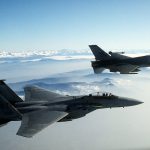Thousands of Japanese military personnel have already accompanied the UN in some of the most perilous conflict zones on the planet. However, at home, priorities have shifted. Many Japanese police officers, election observers, and members of Japan's Self-Defense Forces have served under the United Nations flag in the past. [UN] As of right now, only six people from Japan are allowed to work for the United Nations, and they will all be stationed in command centers rather than on the front lines of the conflict.
Observers say that as conflict violence grows, officials in Tokyo are becoming more reluctant to join in overseas missions since the risks associated with doing so are increasing. In addition, growing tensions in Northeast Asia necessitate a pressing need to maintain troops closer to home.
When the International Peace Cooperation Law, which was passed in June 1992 and established a framework for sending personnel overseas, was passed, it was intended to make Japan a stronger player in maintaining world peace. Japan's territorial waters were also protected by the law, which established a framework for peacekeeping.
Since the passage of this law, Japanese personnel have assisted in the reconstruction of schools, hospitals, and bridges all over the world, as well as the rescue of natural disaster victims and the performance of airlifts. Elections have also gone off without a hitch thanks to them.
In 2012, the Self-Defense Forces stationed 350 soldiers in Juba, South Sudan, beginning their most recent large-scale deployment. On the other hand, this was immediately canceled in May of 2017 as the threat of violence grew.
Garren Mulloy, a professor of international relations at Daito Bunka University, said the Japanese purpose was to carry out engineering work to help the local community. There were also forces from France, the United Kingdom, and China operating with them.
There were conflicting reports at the time, but then fighting broke out in Juba, he stated to DW. The Ministry of Defense, SDF commander, and then-defense minister [Tomomi] Inada all tried to bury this truth.
Japan's 1992 peacekeeping legislation stipulates that its troops can only operate in areas where ceasefires are currently in effect, and that the use of weapon "shall be limited to the minimum necessary to protect personnel's lives."
Tokyo decided to prematurely withdraw its units due to the strict operating rules. Mulloy alleged that when asked about the early departure, bureaucrats and top military officials falsified documents and claimed that others couldn't be found, according to what he indicated.
Japan's people have never been persuaded that having military forces stationed abroad is necessary. As soon as the details of the operation were revealed, the administration was slammed both domestically and internationally. Neither of Tokyo's partners viewed it favorably, and they concluded that Japan was "untrustworthy and incompetent," according to Mulloy. Not a good thing for Tokyo's image.
When Japan's economy boomed and many people expected a more confident Japan to take on a larger role in global security, economics, and political concerns, Mulloy said that Tokyo's original strategy to boost the country's worldwide image had failed miserably in its execution.
Two Japanese troops were killed in Cambodia in 1992 while working for the UN on election observation operations. The killings occurred on the unit's first mission after it was formed in 1992, and the incident sparked calls for its disbandment. Among other locations, these calls were made in the National Diet. Initially, the government rebuffed these requests, but they did set a precedent for future governments that were concerned that carrying corpse bags from other countries back into Japan could have devastating implications.
According to a researcher at Japan's National Institute of Defense Studies, global security concerns have grown in recent years (NIDS).
According to a government official who refused to reveal his identify because he wasn't authorized to speak with the media, a major shift has occurred in the atmosphere.
Other elements, according to the official, were at play. As he explains, Japanese governments have pondered the merits of sending the Self-Defense Force to nations like Africa or the Middle East. Although Japan gains practical experience, it must concentrate on current technologies in order to ensure its own security, which it cannot learn via a peacekeeping mission..
The preceding is a summary of an article that originally appeared on The Daily Cable.




